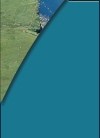Clare's misfortunes were not relieved by
James II whose disastrous sojourn in Ireland, 1689-1690, ended in total
defeat both for himself and for the Irish cause. He was supported by a
number of Clare notables, led by Sir Donogh O'Brien, of Dromoland and
Leamaneh, who was high sheriff of the county. Another O'Brien, Viscount
Clare, raised a regiment of horse Clare's Dragoons which did badly
in the Battle of the Boyne, but won fame later on the European mainland.
After the final overthrow at Aughrim, Patrick Sarsfield led the remaining
Irish forces to France. These Wild Geese fought and died for
other causes in battles "from Dunkirk to Belgrade".
A principal survivor of the debacle was William O'Brien, Earl of
Inchiquin, whose estates had been confiscated by the patriot parliament
of James II, but were restored by William III.
Inchiquin and his successors formed part of the Protestant ascendancy,
which dominated Irish society in the 18th and most of the 19th centuries.
But the oppressed majority gradually regained heart and when the Penal
Laws were slowly lifted towards the end of the 18th century, the men of
Clare had the toughness and spirit to lead the march towards civil and
religious liberty. They returned Daniel O'Connell as Member of Parliament
for Clare in the famous election of 1828, thus making inevitable the
concession of CatholicEmancipation in the following year. Clare had earned
the title of the Banner County.
Clare's history during the remainder of the century was less happy. The
county suffered severely in the great famine of 1845-1848, in common with
all western counties. Its population fell from 286,000 in 1841 to 166,000
in 1861, and by 1871 the decline amounted to 50%. Clare, nevertheless, put
up a good struggle in the Land War (1880-1900) and tenant resistance to the
Bodyke evictions (1886-1890) drew national and even international attention.
Clare's reputation as the Banner County was justified by the election in 1917
of Eamon de Valera, as representative of east Clare. De Valera's defeat of
the Irish Party candidate in that by-election presaged a landslide victory
in the general election of 1918, when the Irish Parliamentary Party suffered
almost total eclipse. De Valera retained the Clare seat from 1917 to 1959,
when he became President of Ireland.
Previous

|

